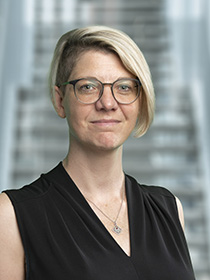Description
Motivation
Due to social and technological developments, transdisciplinary lifelong learning, the understanding of complex systems and the creative development of new knowledge are becoming increasingly important. This not only requires didactic and methodological further developments in the field of adult education, but also brings with it changing demands on learning environments and infrastructures. Different knowledge is available in technical, human and social sciences about the requirements of spatial environments for learning and innovation and the influence of spatial characteristics on the health, well-being and behaviour of users.
Thus, findings from the human sciences such as medicine, behavioural biology and psychology on the interactions between humans and buildings are increasingly finding their way into architectural and building research. The approach of basing planning decisions on empirically verified findings from human sciences goes back to Architect Professor Roger Ulrich and a clinical study carried out by him in 1984. The evolving concept of "evidence-based design" has been applied in initial experiments for the planning of schools and other educational buildings.
In educational research, especially in the field of higher education, there is also an intensive scientific discussion about the influence of the design of learning spaces on the effectiveness of educational programs. In addition to learning success, the maintenance and promotion of motivation and creativity, as well as the health of teachers and learners, are essential objectives. By integrating hardware, software and the design of the physical space, teaching and learning spaces can be developed, that promote interaction, collaboration and creativity.
For transdisciplinary issues in research and teaching, where highly heterogeneous knowledge must be integrated in order to understand systemic problems and generate innovations, integrative and multidimensional spaces are required. The concept of "Innovation Spaces" from creativity and innovation research combines architectural, social and cognitive spaces with the aim of enabling co-creative processes between learners, teachers, experts and stakeholders.
Problem Statement
However, the findings about the requirements and impact of spatial characteristics on learners and teachers, existing in different disciplines, are currently viewed separately from each other. A transfer of knowledge is outstanding. At the same time, the specific demands on learning and innovation spaces in continuing education are hardly examined yet, although it is well known that adult education differs considerably from the learning of pupils in formal education systems.
Objectives and Scope
The aim of the project is to investigate the influence of the design of multidimensional learning and innovation spaces on the success of continuing education programmes in the context of societal and technological developments. This will be done by integrating the scientific expertise of various disciplines in a transdisciplinary process, based on specific case studies and by involving all relevant stakeholders.
The focus will initially be on the consolidation of disciplinary theories and the collaborative development of adequate research methods for investigating the interaction between the spatial characteristics of learning and innovation spaces and the efficacy and cost-effectiveness of continuing education and innovation processes.
Findings from evidence-based research will be used to identify exemplary specific requirements for spatial and structural design. Ongoing social and technological developments such as increasing internationalisation, digitalisation, the establishment of new teaching and learning methods, etc. will be taken into account.
A further objective of the project is to create the foundations and framework for the advancement and continuation of the interdisciplinary research field and the initiated interdepartmental and interfaculty cooperation.
Details
| Duration | 01/02/2019 - 31/01/2021 |
|---|---|
| Funding | Sonstige |
| Departments |
Department for Building and Environment Department for Knowledge and Communication Management Department for Continuing Education Research and Educational Technologies |
| Principle investigator for the project (University for Continuing Education Krems) | Dipl.-Ing. Christina Ipser |
| Project members |
Mag. Sonja Brachtl
Mag. Nicole Hynek
|
| Project website | https://moodle.donau-uni.ac.at/lis |
Team
Publications
Keser Aschenberger, F.; Radinger, G.; Brachtl, S.: Ipser, C.; Oppl, S. (2022). Physical Home Learning Environments for Digitally Supported Learning in Academic Continuing Education during COVID-19 Pandemic. Journal of Learning Environments Research, online first: 10.1007/s10984-022-09406-0, Springer Nature
Ipser, C; Radinger, G; Brachtl, S; Keser Aschenberger, F; Schreder, G; Hynek, N; Zenk, L. (2021). Experiencing learning spaces in continuing education: the learner’s perspective. European Journal of University Lifelong Learning, Vol 5 No 01: 27-41, Eucen
Lectures
Walking Workshops & „Walkshops“ - Der Spaziergang als didaktisches Mittel
Walking Interviews & Workshops in Forschung und Lehre, 22/11/2023
Physical home learning environments of academic continuing education during the C-19 Pandemic.
ESREA (European Society for Research on Education of Adults) 10th trianial Conference, 02/10/2022
Learner Experiences in Learning Space in Continuing Education
eucen Experts’ Seminar 2 June 2021, 02/06/2021

